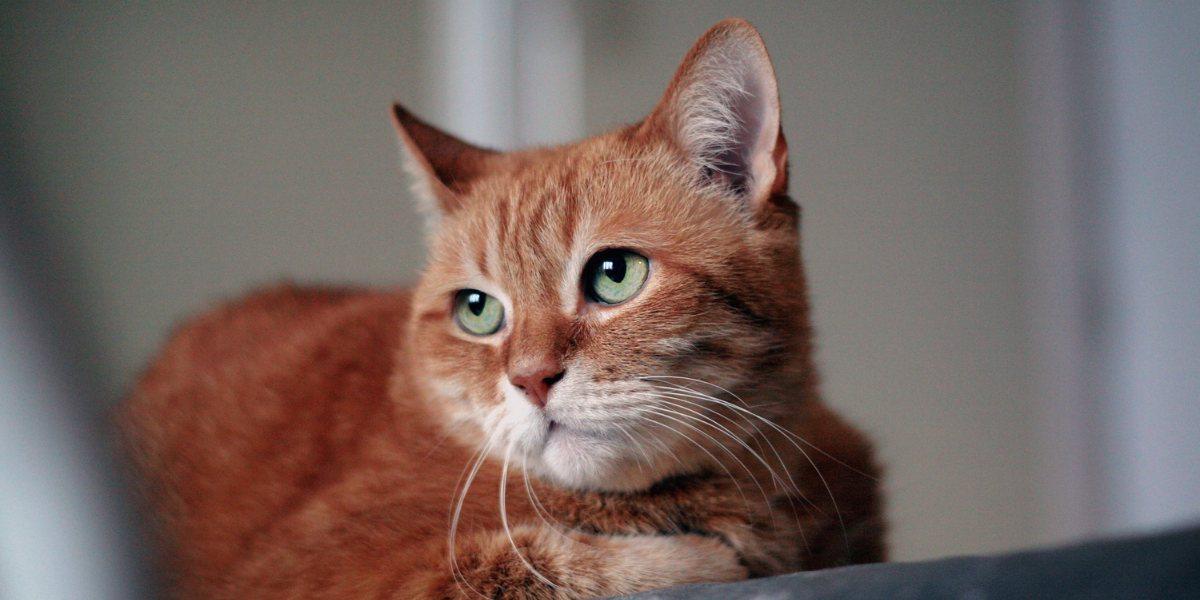What makes a cat cling to one person while missing the rest?
One probability is that you are scared. Cats aren’t exactly the most trustworthy creatures.
Reading: My Cat Loves Me But Hates Everyone Else! Do You Know The Reasons?
It’s part of their lingering wildness, and it’s sometimes part of their emotional baggage if they were strays. For several cats, trusting only one human being is difficult enough; trusting many humans is frustrating.
However, there are other reasons for why certain cats just belong to one human.
It may be the person’s demeanour, tone of voice, or even how they handle the animal. It’s likely that the owner is incredibly sweet, or that he or she is a bit more forceful, bringing out the best in the animal.
Your cat loves you but hates everyone because they don’t know the other people well enough yet, or that they equate their posture, scent, attitude, looks, etc. with things they don’t like for any reason, or that they associate the other person with taking you away from them, or because they feel the other people would “attack” them.
What Makes Cat To Hate Others?
Cats, like dogs, have a much stronger sense of scent than humans. They can clearly tell when someone who enters the living room is not one of the house’s “regulars.”
And some people carry heavy scents with them from cigarettes, perfume, drugs, or foods that the cat might find weird.
Few cats urinate on areas where “new” people have stood for this purpose.
The cat might find the smell unsettling, causing stress and an intensified urge to urinate, or he may try to mask the new scent with his own.
A cat’s hearing is also excellent. As the car pulls into the driveway, your cat might notice a new voice at the front door.
So, even before a stranger gets close enough to contact your pet, kitty may have concluded that this new person who smells and sounds different than you does is terrifying.
Some cats hide, while others hunker down in their favourite hiding place, hoping no one would find them.
It might look to your cat as an ambush when the visitor arrives nearby, peering at the cat with curiosity. If the “outsider” confronts the cat, it might be enough to drive kitty off the edge of her ability to remain cool.
The outcome may be a puffed-up cat growling, hissing, swatting with hands, scratching with claws, and/or fleeing. Of course, you and your visitor were both conscious that the cat’s wellbeing was not in jeopardy.
However, the cat may think he was in grave danger. If that person returns, the response to the sounds and smells of the “outsider” could be faster or more dramatic.
How Can You Help Your Poor Kitty To Socialize With Others?
1. Take Care Of Your Cat’s Well-being!
Although you might be excited to meet your new neighbors, your cat needs to feel secure in his surroundings.
If you know your cat isn’t ready for visitors yet, schedule a meeting with your family or friends at a local café, or find a safe, peaceful spot for your cat to stay while you have visitors.
Over all, except with the best of intentions, do not encourage new people to reach for, tease, or scold your pet.
Any of those behaviors may appear to your cat as an assault.
Read more : What is in Cat Treats That Cats Love?
It’s up to you to keep the situation under control and prevent your cat from getting any kind of contact until he’s ready.
2. Make An Evaluation
Do you have a real scaredy-cat on your paws, or just a timid one?
Loud noises, engines, heavy odors, cigarettes, too much movement, men, women, or children seem to be the most frightening to your animal.
You can begin by adding someone who is unlikely to annoy your cat to your cat’s “people” list. If your cat is afraid of cats, don’t start by throwing a 15-kid birthday party for your niece!
3. Is It Time For You To Make A Change?
This could be a lower priority if you are a non-social retired widow living in a tiny apartment where you do not entertain visitors.
However, if you want to introduce a roommate, partner, children, or elderly parent to the household in the future, begin by bringing new individuals to the household for brief periods of time only in discreet, friendly ways.
4. Learn To Read The Body Language Of Cats
Understanding the sense of small variations in pupil size, ear orientation, tail twitch, and whisker hold can help you understand how your cat is feeling.
Slow blinking and preventing direct eye contact will communicate to your cat that visitors are not dangerous.
5. Know Your Feline Companion
Also for cats that get along with humans, there are times when those places are off limits. Some cats can only tolerate about three minutes of contact and petting before losing interest.
Continuing to pet or bond with a sassy feline can result in the cat using offensive tactics to get your attention.
Some cats don’t mind ass kisses and belly rubs, but they aren’t thrilled when they come from a stranger. And if the kitty permits it, warn the guests to be more cautious. Allow your cat to come up to you at her leisure.
Offer a neutral, calm hand, but avoid reaching or grabbing. Giving your cat a voice in what happens goes a long way toward stopping aggression and creating trust.
6. Assemble Happy Thoughts
This is referred to as “counter-conditioning.” If your cat thinks humans are frightening, you should couple the arrival of guests with something your cat adores.
In order for this to succeed, you must also keep the visitor numbers low for your pet. Perhaps the guest might come into the house but stay far away from your cat while you feed high-value cat treats or do something the cat enjoys.
For certain animals, it could be grooming or playing with a cat feather wand toy; for others, it could be a catnip gathering.
Maintain a neutral stance away from the cat whilst the visitor is present, and carry on with the activity.
Choose a trigger word that will allow the guest to silently leave the room or the house while you interrupt whatever good thing or action you’re doing. You’re associating the visitor’s presence with something your cat likes.
As a result, when the tourist departs, the nice thing (and all good attention) should come to an end as well.
Since it “makes” the positive thing happen, doing this on a daily basis will make the cat feel happier about the visitor’s appearance.
7. Increase The Program’s Scope
Once you’ve done it a few times, start expanding the number and categories of guests you receive. The number of times and how frequently you do it depends on how your cat responds.
Read more : Can cats eat onions ? Get the answer from Untamed
You can alter one part of the visits at a time if the cat is calm during the initial sessions.
The stay could last a while longer, or the guest could sit a little closer to the cat, or you could invite someone else. It’s important not to hurry anything.
8. Find Unique Ways
A new visitor could come by and read a book secretly when you are at home, or they could come over for your cat’s dinnertime.
Reading, for example, is a peaceful task that requires no eye contact or physical touch with your pet.
A cat will determine that the human is “safe” and that it is OK to approach after 15 to 30 minutes.
Why Does My Cat Hide From Everyone but Me?
Cats are creatures that enjoy hiding, especially in boxes, but this is not necessarily for the sake of amusement or tranquilly.
The appearance of visitors in your house, for example, will bother and even stress your pet.
It’s not always easy to figure out why cats hide when visitors come by, particularly if the cat has been rescued, but there are ways to help them cope with their anxiety, tension, and even inspire them to meet new people.
What Makes Cats Escape And Hide?
Given their sociability, all cats hide from time to time in search of quiet and tranquilly.
That is why we always recommend that your cat have a quiet place to go when they need shelter, somewhere private where they will not be bothered.
Any kitten must go through a crucial phase of socialisation, which starts about one month of age and lasts until three months of age.
The kitten is learning to relate to their mother and siblings at this time, as well as other felines, but they must also learn to relate to humans, other species, and eventually all that the world has to give them.
Trauma can lead a cat to become fearful of people, and it can happen in ways that are almost imperceptible to humans and thus run away from them.
Cats may acquire a fear of a particular individual, a group of people, or all humans.
Moving houses or having a new-born is two major life events that can trigger depression in our best mate. Examine your cat to see if they are displaying any signs of stress if their everyday routine has changed.
Also, check out do cats change their favorite person
Frequently Asked Questions
Final Words
When your family’s cat comes into a room and avoids everyone but you, it’s a pretty awesome feeling. They make a beeline for your lap, and you know you’re your cat’s favourite human without a doubt.
Cats may not be as outwardly affectionate as dogs, but that doesn’t mean they don’t form strong bonds with humans.
You know just what I’m talking about if you’re your cat’s Chosen One. It’s truly special to have a close relationship with a cat.
Share your thoughts in the comments section below how your cat loves you the most!
Source: https://mcpawscare.org
Category: Cat Love



